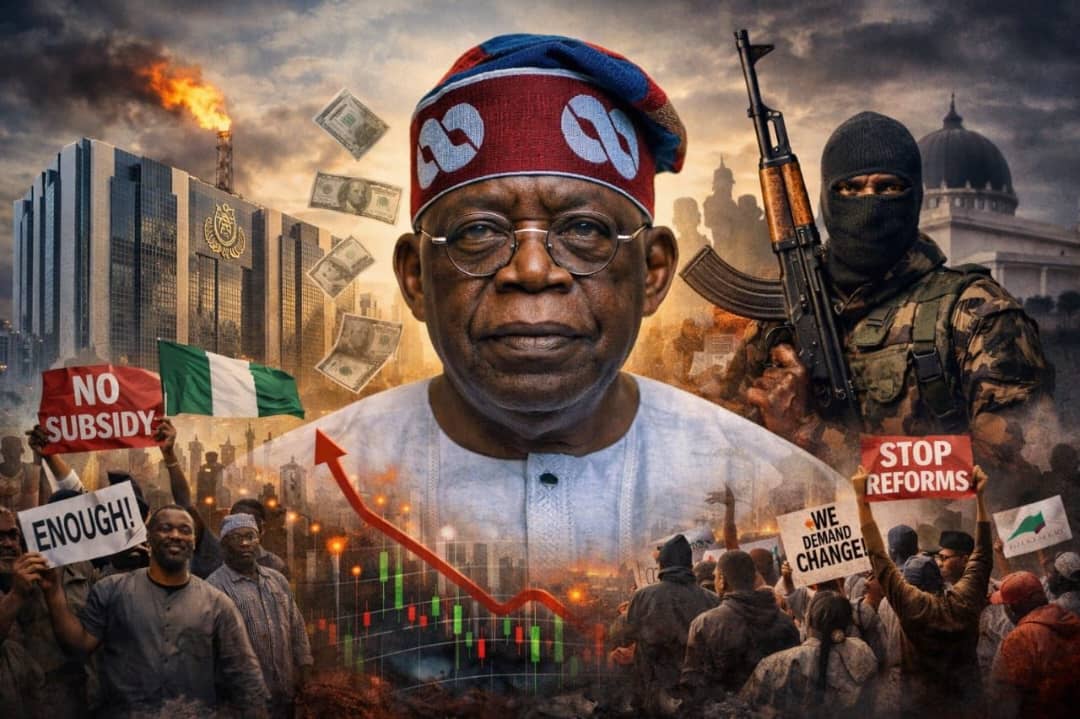society
10 Advantages of Buying Off-Plan Property in Nigeria by Dennis Isong

10 Advantages of Buying Off-Plan Property in Nigeria by Dennis Isong
Have you ever thought about buying a house or apartment that hasn’t been built yet? This is called buying “off-plan” property. In Nigeria, more and more people are choosing this option when they want to own a home. Let’s explore 10 big advantages of buying off-plan property in Nigeria.
1. Lower Prices
One of the best things about buying off-plan is that it’s usually cheaper than buying a finished home. When you buy early in the building process, developers often offer lower prices to attract buyers. This is because they need money to start or continue building. By buying off-plan, you can get a great deal on a property that might cost much more once it’s finished.
For example, let’s say a developer is planning to build a block of apartments in Lagos. They might offer the first few buyers a 20% discount on the final price. This means you could save millions of Naira just by buying early!
2. More Time to Save Money
When you buy off-plan, you don’t have to pay for everything at once. Usually, you pay a deposit first, and then you make more payments as the building goes up. This gives you more time to save money or arrange a mortgage. It’s like having a savings plan that ends with you owning a home!
Let’s say the apartment you want costs 50 million Naira. You might pay a 10% deposit (5 million Naira) when you agree to buy it. Then, you could have 18 months or more to save up or arrange the rest of the money before the apartment is ready.
3. Customization Options
Another great thing about buying off-plan is that you often get to choose how your home looks inside. You might be able to pick the colors of the walls, the type of flooring, or even the layout of the rooms. This means your new home can be just the way you like it, without you having to do any extra work.
Imagine being able to choose between having a big kitchen or an extra bedroom. Or picking the perfect tiles for your bathroom. When you buy off-plan, you often get these choices!
4. Newer Designs and Technology
Off-plan properties are usually more modern than older homes. Developers use the latest building techniques and include new technologies. This could mean better insulation to keep your home cool, solar panels to save on electricity, or smart home features that make life easier.
For instance, your new off-plan apartment might come with high-speed internet already installed, or a modern security system to keep you safe.
5. Higher Potential for Increase in Value
Property values in Nigeria often go up over time, especially in big cities like Lagos, Abuja, and Port Harcourt. When you buy off-plan, you’re locking in today’s price for a property that will be finished in the future. By the time your home is ready, it might already be worth more than what you paid for it!
Let’s say you buy an off-plan apartment in Abuja for 40 million Naira. Two years later, when it’s finished, similar apartments in the area might be selling for 50 million Naira. You’ve already gained 10 million Naira in value!
6. Better Locations
Developers often choose great locations for their new projects. They look for areas that are growing or improving, places close to important roads, schools, or shopping areas. By buying off-plan, you might get a chance to own property in an area that will become very popular in the future.
For example, a developer might start a project in an area of Lagos that’s getting a new train station. By the time your home is ready, you could be living in a well-connected, sought-after neighborhood.
7. Guaranteed New Home
When you buy off-plan, you know you’re getting a brand new home. Everything will be fresh and unused. This means you probably won’t have to spend money on repairs or renovations for a long time. New homes also often come with warranties, so if anything does go wrong, it can be fixed for free.
Imagine moving into a home where you’re the first person to use the kitchen, or sleep in the bedroom. Everything is clean, new, and working perfectly!
8. Easier Budgeting
Buying off-plan can make it easier to plan your finances. You know exactly how much you need to pay and when. This can help you avoid surprises and make sure you have enough money saved at the right times.
For instance, if you know you need to pay 20% when the foundation is laid, 30% when the walls are up, and the rest when it’s finished, you can plan your savings or loan payments to match these stages.
9. Potential for Better Deals
Developers want to sell their properties quickly, especially at the start of a project. This means they might offer special deals to early buyers. You could get extras included in the price, like air conditioning units, a parking space, or even furniture.
Some developers might even offer a guarantee to buy back the property at a higher price if you decide you don’t want it when it’s finished. This can give you peace of mind about your investment.
10. Excitement and Anticipation
Last but not least, buying off-plan can be really exciting! You get to watch your future home being built from the ground up. Each visit to the site shows more progress. It’s like watching a dream come true in front of your eyes.
This excitement can make the waiting time feel special, rather than frustrating. You have time to plan how you’ll decorate, or to save up for furniture. By the time you move in, you’ll already feel a strong connection to your new home.
Dennis Isong is a TOP REALTOR IN LAGOS.He Helps Nigerians in Diaspora to Own Property In Lagos Nigeria STRESS-FREE. For Questions WhatsApp/Call 2348164741041
society
Good Politics Or Just Power? Two Years After The Elections

Good Politics Or Just Power? Two Years After The Elections
Two years after the last general election, Nigerians are justified in asking a direct question: is our democracy stronger today than it was then? Democracy is not measured by how many offices a party controls or how loudly politicians speak. It is measured by integrity, accountability, and the lived experience of the people. Good Politics demands more than victory at the polls; it demands moral leadership and visible progress in the lives of citizens.
The debate over amendments to the Electoral Act should have provided an opportunity to deepen transparency and strengthen public confidence. Instead, hesitation to fully embrace reforms that safeguard credible vote transmission and accountability has fueled doubt. In a nation where electoral credibility remains fragile, any reluctance to reinforce safeguards sends the wrong signal. Good Politics stands firmly for processes that are open, fair, and beyond suspicion.
The party in power commands significant authority across the federation. With control of the presidency, many state governments, a strong presence in the National Assembly, and influence at local levels, there should be no anxiety about reforms that ensure free and fair elections. Confidence in leadership is demonstrated not by dominance, but by a willingness to subject power to scrutiny. Politics rooted in the omoluabi ethos embraces fairness, transparency, and responsibility, even when inconvenient.
This is the standard long associated with Awolowo, whose politics emphasized discipline, social welfare, education, and institutional strength. His vision was not merely about holding office, but about transforming society through principled governance. Good Politics follows that tradition. It rejects manipulation, arrogance, and the concentration of power without accountability. It insists that authority must serve the people, not itself.
Beyond electoral reforms, democracy must deliver tangible relief. Across the country, households struggle with rising prices and shrinking purchasing power. Small businesses are burdened by escalating costs. Young people search for opportunities that remain scarce. When economic hardship deepens, democracy feels abstract. Good Politics recognizes that political legitimacy is reinforced when citizens can see and feel the benefits of governance.
The concentration of power within a single political structure should translate into coordinated reform and measurable development. When it does not, questions naturally arise. Democracy weakens when dominance replaces performance. It weakens when loyalty to party eclipses loyalty to principle. The omoluabi tradition teaches that character defines leadership. Without character, authority becomes hollow.
A healthy democracy requires credible elections and compassionate governance. It requires leaders who understand that politics is a moral enterprise. Two years into this administration, many Nigerians remain uncertain about the direction of both our democratic processes and their daily welfare. If democracy is to endure, it must reflect Good Politics: fairness in competition, integrity in conduct, and compassion in governance. Anything less falls short of the standard that our history and our values demand.
news
GEN CHRISTOPHER GWABIN MUSA SUPPORT INITIATIVE COMMENDS STATE-FEDERAL COLLABORATION IN ZAMFARA

GEN CHRISTOPHER GWABIN MUSA SUPPORT INITIATIVE COMMENDS STATE-FEDERAL COLLABORATION IN ZAMFARA
The Gen Christopher Gwabin Musa Support Initiative (GCGMSI) has commended the Zamfara State Government for its decisive contribution to security operations through the donation of newly acquired armoured personnel carriers (APCs), surveillance drones, and other critical operational equipment to troops and security agencies in the state.
This commendation was contained in a statement signed by the Convener of the GCGMSI, Ibrahim Dahiru Danfulani, Sadaukin Garkuwan Keffi/Betara Biu, and made available to the press.
The equipment was formally commissioned on Wednesday, February 18, by the Grand Patron of the GCGMSI and Minister of Defence, General Christopher Gwabin Musa, OFR (rtd.), in a ceremony at the Government House, Gusau. The event was attended by senior military officers, heads of security agencies, and top officials of the Zamfara State Government.
The GCGMSI, in its statement, hailed the donation as a “transformative and timely intervention” that aligns perfectly with its core objective of advocating for and supporting tangible measures that enhance the operational capacity and welfare of Nigeria’s security forces. The Initiative praised Governor Dauda Lawal’s administration for moving beyond rhetoric to actionable, material support, describing the move as a “blueprint for state-level collaboration in national security.”
“The provision of these assets by the Zamfara State Government is a testament to visionary leadership and a profound commitment to the peace and stability of its people,” the GCGMSI statement read. “It represents the exact kind of synergistic partnership between state and federal authorities that the GCGMSI champions. This initiative will significantly close operational gaps, boost the confidence of our gallant troops, and send a strong message to criminal elements.”
Speaking at the commissioning, General Musa emphasized that sustained collaboration is indispensable in confronting the nation’s evolving security challenges. He specifically commended Governor Lawal for his proactive support.
“Governor Dauda Lawal has demonstrated exemplary leadership and an unwavering dedication to the security of Zamfara State,” the Defence Minister stated. “The provision of these armoured vehicles, surveillance drones, and other operational equipment will undoubtedly boost the morale and operational effectiveness of our troops and other security agencies on the ground. This is a commendable effort that should be emulated by others.”
The newly commissioned assets, which include multiple APCs and advanced surveillance drones, are expected to dramatically enhance the mobility, protection, intelligence-gathering, and rapid response capabilities of security forces, particularly in the state’s remote and difficult terrains where anti-banditry operations are ongoing.
In his remarks, Governor Lawal reiterated his administration’s steadfast commitment to being a reliable partner in the security architecture. He urged security agencies to deploy the new resources responsibly and effectively to safeguard lives and property.
The Federal Government, through the Ministry of Defence, reaffirmed its commitment to continuing and deepening such partnerships with state governments across the nation to strengthen coordination and resource allocation in the collective fight against insecurity.
The GCGMSI concluded its statement by urging other state governments to take a cue from Zamfara’s “bold and pragmatic” approach, affirming that such concrete support is vital for achieving lasting peace and security across Nigeria.
society
Governor Dauda Lawal Commissions 25 Armoured Personnel Carriers, Aerial Surveillance Drones to Combat Insecurity

Governor Dauda Lawal Commissions 25 Armoured Personnel Carriers, Aerial Surveillance Drones to Combat Insecurity
In a major boost to the fight against banditry and insecurity in Zamfara State and the North-West Zone, Zamfara State Governor, His Excellency, Dr Dauda Lawal, on Wednesday commissioned 25 new Armoured Personnel Carriers (APCs) and sets of surveillance drones for the military and other security agencies operating in the state.
The event, which took place in Gusau, was part of the state government’s ongoing effort to provide structured logistical support to frontline security forces and combat insurgency, banditry, and protect lives and properties. Speaking at the commissioning and handover, Governor Lawal emphasised that the new assets are intended to enhance troop protection during high-risk deployments and improve rapid response capabilities in remote communities, ensuring tactical battle and overhead surveillance for victory.
“We have provided over 600 specialised motorcycles, 150 Hilux vehicles, and 20 Buffalo vehicles to our security forces. These 25 highly sophisticated APCs being commissioned today are therefore part of a broader reform to improve response to security threats. The APC’s significantly improves troop protection during deployments into high-risk areas. They reduce vulnerability during patrols, support convoy security along major routes, and strengthen rapid response capability when distress calls arise from remote communities.” the Governor stated.
Governor Lawal explained that the security challenges of recent years had disrupted farming, limited trade, and undermined public confidence across the state. He noted that his administration’s “Rescue Mission” agenda has focused on moving from fragmented responses to structured reforms, including the establishment of a Zamfara State Security Trust Fund and the operationalisation of Community Protection Guards to improve grassroots intelligence.
The Governor specifically highlighted the importance of integrating modern technology into security operations. He noted that the newly acquired drones would expand aerial surveillance, improve situational awareness, and support better coordination between command centres and troops in the field.
“Real-time information strengthens decision-making and reduces operational blind spots,” he added.
Governor Lawal however acknowledged the critical role of the Federal Government under President Bola Ahmed Tinubu, noting that recent federal budgets have allocated over three trillion naira to defence, a commitment he said strengthens subnational stabilisation efforts.
He urged the military commanders and personnel receiving the equipment to ensure disciplined maintenance and intelligence-guided deployment. “Enhancing your safety enhances the safety of our communities,” he told the troops.
Governor Lawal also told the people of Zamfara that; his administration remains resolute in restoring enduring security and peace across every Local Government Area. “We will sustain preventive measures, strengthen patrol architecture in rural corridors, deepen inter-state intelligence collaboration across the North-West, and maintain fiscal prudence in security expenditure. Stabilisation will continue through structured planning, lawful enforcement, and institutional reform.”
The Governor also linked the security investment to economic recovery, stressing that stability in rural areas is essential for agricultural productivity, market activity, and food security.
The event was attended by the Honourable Minister of Defence, General Christopher Musa (Rtd.), who formally commissioned the assets for operational service. Governor Lawal reaffirmed his administration’s resolve to sustain preventive measures and inter-state security collaboration until lasting peace is restored across all Local Government Areas in Zamfara.
-

 celebrity radar - gossips6 months ago
celebrity radar - gossips6 months agoWhy Babangida’s Hilltop Home Became Nigeria’s Political “Mecca”
-

 society6 months ago
society6 months agoPower is a Loan, Not a Possession: The Sacred Duty of Planting People
-

 society5 months ago
society5 months agoReligion: Africa’s Oldest Weapon of Enslavement and the Forgotten Truth
-

 news6 months ago
news6 months agoTHE APPOINTMENT OF WASIU AYINDE BY THE FEDERAL GOVERNMENT AS AN AMBASSADOR SOUNDS EMBARRASSING








